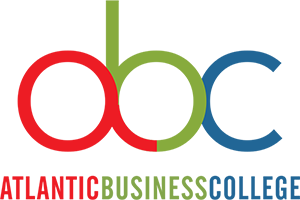Educational Assistant
Educational Assistant
This program is designed to provide students with the knowledge and skills needed to assist classroom teachers in inclusive educational settings. The program combines theory and practical applications for elementary and secondary age students in the K-12 school system.
*Students can choose to take both Early Childhood Education and Educational Assistant courses, or they may take only the courses pertaining to either Early Childhood Education or Educational Assistant. Tuition is the same. Students who select both programs broaden their employment opportunities.
INFORMATION:
Fredericton, NB, Canada.
Full Time
Elementary and secondary school teacher assistants support students and assist teachers and counsellors with teaching and non-instructional tasks. They assist in areas of personal care, teaching, and behavior management under the supervision of teachers or other childcare professionals. They are employed in public and private elementary, secondary, and special needs schools and treatment centers.
1 year (2 Semesters)
ADMISSION REQUIREMENTS:
Students must meet one (1) of the following admission requirements:
- High school graduation or
- GED or equivalent or
- Mature student – Detailed resume outlining experience and qualifications must be submitted.
- Autism Intervention
- Child Development
- Child Guidance
- School-Age Children
- Health & Safety
- Children with Exceptionalities
- Observation & Assessment
- Communication
- Professional Development
- Working with Families
- Adolescent Development
- EA Comprehensive Project
- Work Placement 15-days
- Intro to Computers/Keyboarding/Word
- Food Safety
- CPR and First Aid Training
- Criminal Record Check
ScholarshipsCanada.com- This website provides a full range of scholarships available to Canadian residents who are attending post-secondary institutions. The search list can be defined by province, program and various other criteria.
Social Services
TUITION & FEES:
Tuition: $9695.00
Textbooks: $1750.00 plus 5% tax
Provincial and Federal student loans are available to qualifying students. For more information on applying for a student loan, New Brunswick residents should contact New Brunswick Student Financial Services at www.studentaid.gnb.ca. If you have not lived in New Brunswick for the past 12 months, or if you are currently living in another province, please contact your provincial Student Financial Aid office.
$96.95 (1% of tuition)
Educational Assistant Course Information
Autism Intervention
The number of cases of children with autism is increasing worldwide. Autism is recognized as one of the most common neurological disorders affecting Canadian children and is one of the most common developmental disabilities. In this course, you will gain an understanding of what autism is and the challenges and difficulties that are faced by a child with ASD. We will focus on teaching children with ASD in the areas of communication, social skills, self-monitoring and also how to deal with challenging behaviours.
Child Development
Child Development explores the question of how individuals change or remain the same over time, and what factors contribute to this continuity and change. We begin by examining some of the early theories of child development and how these theories have changed over the past several hundred years. The physical, cognitive, social and emotional development of children from the prenatal stage up to the age of five will also be explored.
Child Guidance
This course is based on the case study approach. Each chapter opens with a case study which provides rich examples of potential behaviour problems and possible positive solutions. This course focuses on positive and authoritative child guidance, based on principles of Developmentally Appropriate Practice or DAP.
School Age Children
This course offers a logical progression of experiences and suggestions for creating an optimum environment for school-age children. Concepts that will be examined are the characteristics of school-age children and optimal learning conditions for this age group. Students will also view ways to help them learn how to assist children in various competencies throughout different stages of childhood. Students will also practice creating and leading activities that will add to their repertoire of ideas for school-age children.
Health & Safety
This course provides an important framework for looking at health promotion with childcare providers and teachers. Students will find health information and support essential for professionals who interact with children.
Children with Exceptionalities
This course provides an introduction to the education and care of children with special needs. Children are not characterized by their exceptionalities. Rather, an understanding of each child’s strengths, abilities, and developmental needs is used as a basis for inclusive program planning. This course focuses on an approach to support, encourage, and respond to the developmental needs of all children. Information is provided to enable students to feel comfortable teaching children with special needs and to be successful integrating them into classroom programs.
Observation & Assessment
Students will learn to maintain a close relationship between observing, understanding what one observes and improving your curriculum and environment. Observation is one of the most important ways to obtain pertinent and critical information about children, the environment, the curriculum and your teaching style.
Communication
Communication is not a collection of techniques we use on others; it is a process we engage in with them. This course will look at differences and similarities between male and female communication; both verbal and nonverbal. It will also provide information for effective communicating skills, both sending and receiving.
Professional Development
This course will provide students with the opportunity to acquire the skills, knowledge and confidence to determine the proper behaviour that should be practiced when dealing with difficult situations. Student’s main responsibility is for the care and reasonable guidance for all children. Students will reflect upon and review various roles and responsibilities of their position to better understand their best choice of outcomes in possible problematic areas. Review of updated protocols, rules, regulations and standards available for early childhood education work. Having occupational standards in the work place is the norm and students will review, reflect and discuss those ideas.
Working with Families
This course aims to help childcare providers meet the needs of diverse families. More and more families need help from many perspectives to remain healthy and keep stress levels low. Roles of mothers and fathers are always changing and childcare providers need to know how to foster positive communication for all situations. We are all responsible for children and families.
Adolescent Development
This course will help students understand the bases of changes an adolescent will go through. Adolescents need to be appreciated for the diversity of themselves, their families, communities and cultures that all work together to help make them who they are.
Final Assessment
This project encompasses many concepts covered throughout the entire program. Students will reflect on practices learned, and during the completion of this project will focus their thoughts on ideas presented in class, learned during discussions and researched for study purposes. This final assignment will allow students to bring all learned areas together in a complete work to finish their program.
Work Placement 5-weeks
As part of the program, students participate in a five-week On-The –Job Training program divided into one three-week term and one two-week term.
Intro to Computers/Keyboarding/Word
This course is designed to assist students in mastering the alphabetic and numeric keyboard, speed and accuracy and formatting of letters and memos. Instruction is also offered in computer functions, terminology and structure. Current software packages such as Microsoft Word and Outlook are used.
Food Safety
Canadian Restaurant & Foodservice’s National Food Safety Training Program – this nationally recognized training program is designed to provide food safety training and certification to ensure food handlers have the information they require to prepare and serve safe food.

Program Fees
This fee is for: Administration, Management, and Social Service Programs

